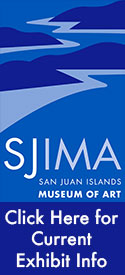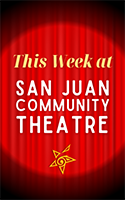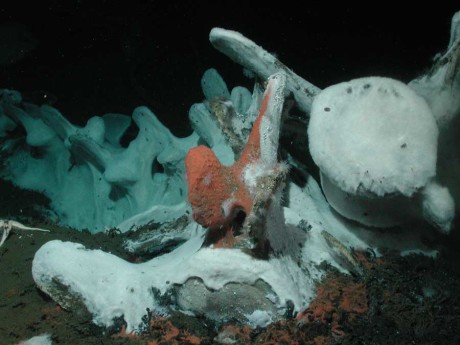Cancelled – Food-rich Oases at the Seafloor
Posted August 1, 2014 at 11:10 am by Tim Dustrude
Just got word from the Whale Museum that this event has been cancelled. They are going to reschedule and we will let you know as soon as they do.
The Whale Museum’s Lecture Series:
Food-rich oases at the seafloor: The ecology of whale falls
Presented by Craig Smith
The Whale Museum is pleased to welcome Craig Smith as part of the 2014 Summer Lecture Series. Craig will discuss “Food-rich oases at the seafloor: The ecology of whale falls” – cancelled.
Whale falls produce remarkable organic- and sulfide-rich habitat islands at the seafloor. The past decade has seen a dramatic increase in studies of modern and fossil whale remains, yielding exciting new insights into whale-fall ecosystems. Giant body sizes and especially high bone-lipid content allow great-whale carcasses to support a sequence of heterotrophic and chemosynthetic microbial assemblages in the energy-poor deep sea. Deep-sea metazoan communities at whale falls pass through a series of overlapping successional stages that vary with carcass size, water depth, and environmental conditions. These metazoan communities contain many new species and evolutionary novelties, including bone-eating worms and snails and a diversity of grazers on sulfur bacteria. Molecular and paleoecological studies suggest that whale falls have served as hot spots of adaptive radiation for a specialized fauna; they have also provided evolutionary stepping stones for hydrothermal vent and cold seep mussels and could have facilitated speciation in other vent/seep taxa.
Craig Smith obtained his Ph.D. from Scripps Institution of Oceanography in 1983 and is a Professor of Oceanography at the University of Hawaii with strong interests in biodiversity, disturbance ecology and human impacts in seafloor ecosystems. Smith has conducted research in Antarctica, mangroves, submarine canyons, whale-fall communities, cold seeps, continental slopes and abyssal plains to obtain a broad perspective of natural and stressed marine ecosystems. He received a Pew Fellowship in Marine Conservation in 2004 and has helped to design of MPA networks for seamounts systems, abyssal nodule regions targeted for mining, and for hydrothermal-vent and cold-seep ecosystems. He has lead 57 research expeditions from the equator to Antarctica, and has conducted over 100 HOV, ROV and AUV dives. Smith has published ~140 papers in the scientific literature on seafloor ecology, biodiversity, climate-change impacts, and the design of marine protected areas.
The August 1st lecture event is free and open to the public. For more information, call (360) 378-4710 ext. 30. The Whale Museum is located in Friday Harbor at 62 First St. N. Founded in 1976, The Whale Museum’s mission is to promote stewardship of whales and the Salish Sea ecosystem through education and research. In addition to providing exhibits, the Museum also provides programs including the Marine Naturalist Training, Orca Adoption Program, Soundwatch Boater Education, San Juan Islands Marine Mammal Stranding Network, and the Whale Hotline. The Whale Museum can be found on-line at www.whalemuseum.org
You can support the San Juan Update by doing business with our loyal advertisers, and by making a one-time contribution or a recurring donation.
Categories: Around Here











No comments yet. Be the first!
By submitting a comment you grant the San Juan Update a perpetual license to reproduce your words and name/web site in attribution. Inappropriate, irrelevant and contentious comments may not be published at an admin's discretion. Your email is used for verification purposes only, it will never be shared.